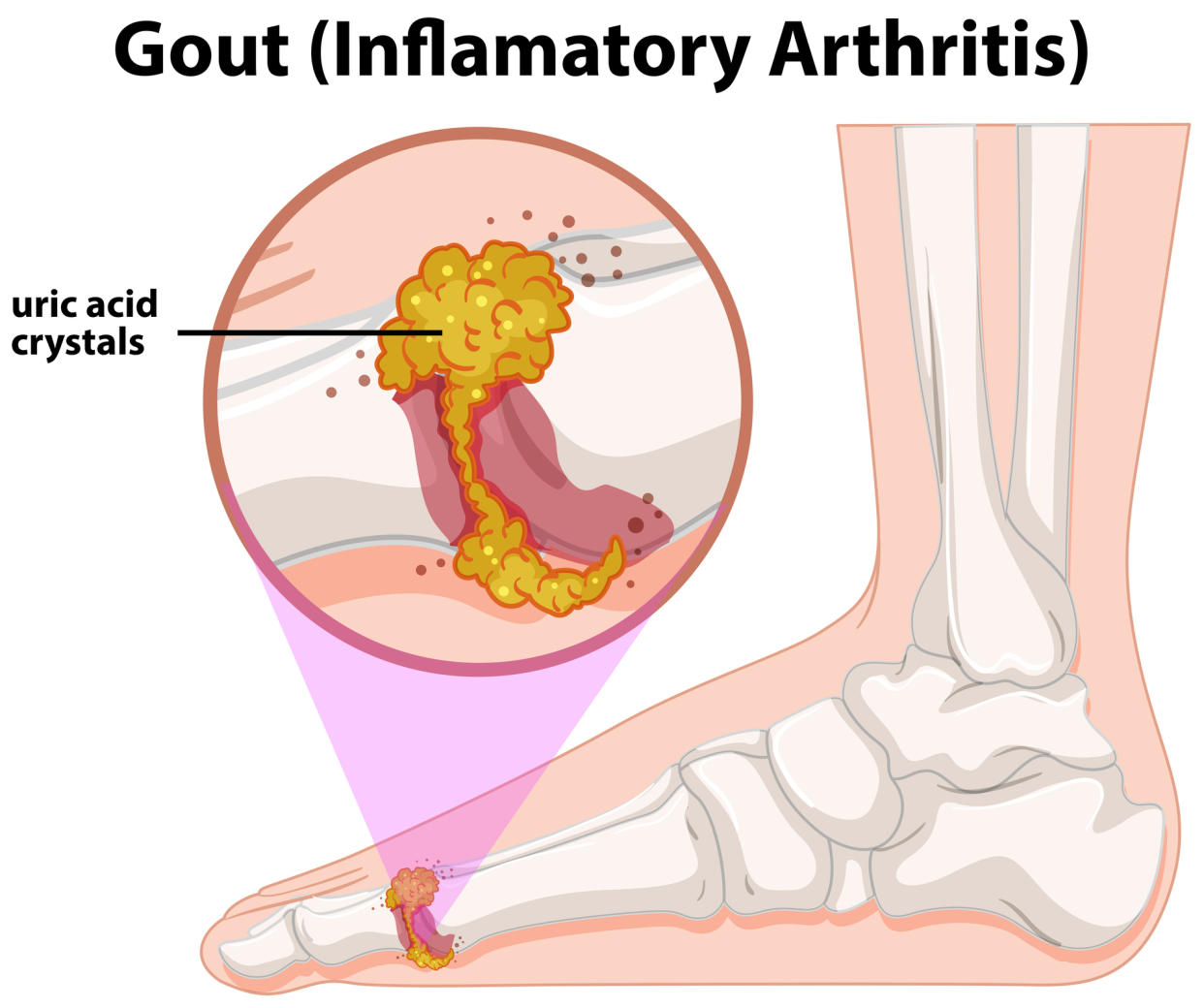It turns out gout might not actually be caused by a bad diet

It’s a condition that has always been put down to poor diet – especially things like too much wine, beer and spirits.
But according to new research, gout is more likely to be brought on by genetics.
The study, carried out by a research team in New Zealand and published in the British Medical Journal, used data from more than 16,000 American men and women of European ancestry to reach its conclusions about the joint disease.

Gout is caused by high levels of uric acid in the blood, which can form crystals that collect around joints, causing extreme pain and swelling.
According to the researchers, diet can have a small impact on the likelihood of getting gout.
READ MORE FROM YAHOO NEWS UK:
This is now the world’s most powerful passport for travel freedom
Hurricane Michael: At least one person killed as ‘terrifying’ 155mph winds lash Florida
Greek island bans overweight tourists from riding donkeys after animals suffer spinal injuries
Christian bakers win Supreme Court ruling that they discriminated against ‘Support Gay Marriage’ cake
Storm Callum to hit UK on morning of Princess Eugenie’s royal wedding
Consuming beer, wine, spirits, potatoes and meat can raise the risk of getting it while cheese, eggs, peanuts and brown bread can lower it.
However, each of these foods or drinks is responsible for less than a 1% variation in levels of the acid.
Similarly, a comparison of healthy and unhealthy diets showed there was only a 0.3% variation in levels of the acid.
By contrast, almost a quarter of the variation can be explained by genetic factors.
Scientists at Keele University in Staffordshire said people with gout can be reluctant to get treatment because of the social stigma associated with having a poor diet.
The study counters “these harmful but well-established views and practices, and provides an opportunity to address these serious barriers to reducing the burden of this common and easily treatable condition”.


